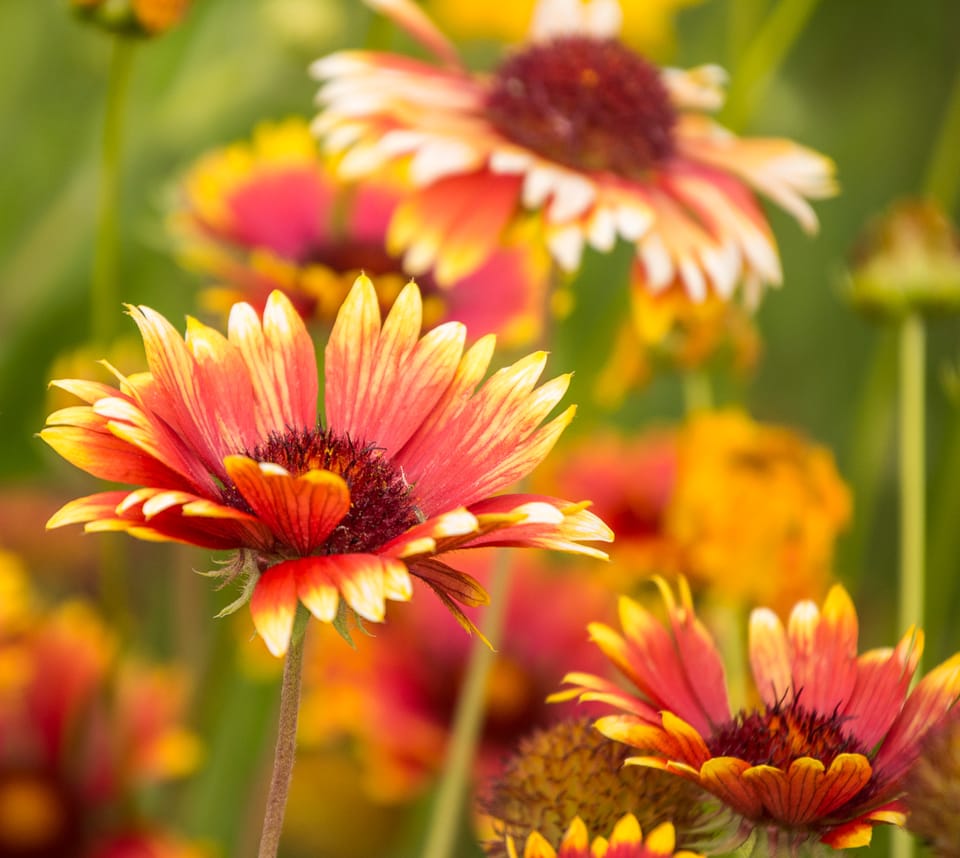Gardens & Pollinators / Les Pollinisateurs et les Jardins: Éco dans les Prairies

Gardens & Pollinators
You can listen to the March 23 episode of Éco dans les Prairies in replay. The links are listed below if you would like to learn more about the subjects we discussed.
Bees, butterflies, wasps, and other insects are needed to pollinate plants. Honey bees are often in the news, but they’re non-native livestock and not at risk of disappearing. There are, however, over 800 species of native bees in Canada and some of them are in trouble.
It’s important to plant a wide variety of plants in our gardens and to include lots of native plants. Blazing Star Wildflower Seed Company in Saskatchewan is a family-run business and an excellent source of seeds. You can also visit the Native Plant Garden at the Royal Saskatchewan Museum in Regina.
People in various Saskatchewan communities are growing native plants as part of the David Suzuki Foundation’s Butterflyway Project. Wild About Saskatoon has initiated Pollinator Paradise YXE, which is very similar. There are some excellent resources on their website.
Les Pollinisateurs et les Jardins
Vous pouvez écouter la chronique du 23 mars en rattrapage. Voici ci-dessous les liens si vous voulez apprendre davantage sur les activités dont on a parlé.
On a besoin des pollinisateurs tels que les abeilles, les papillons, les guêpes, et d’autres insectes pour polliniser nos plantes. On a l’habitude de penser tout d’abord aux abeilles mellifères. Mais elles sont domestiquées et il n'y a pas de pénurie. Par contre, il y a plus de 800 espèces d’abeilles indigènes au Canada et plusieurs d’elles sont en danger de disparaître.
Il est important de semer une grande variété de plantes, en particulier des plantes indigènes. Vous pouvez obtenir des semences pour des plantes indigènes de Blazing Star Wildflower Seed Company, une entreprise familiale. Ça vaut la peine de faire un tour du Native Plant Garden au Royal Saskatchewan Museum à Regina.
Les gens dans plusieurs communautés en Saskatchewan cultivent des plantes indigènes dans le cadre du Butterflyway Project initié par le David Suzuki Foundation. Wild About Saskatoon soutient un projet semblable – Pollinator Paradise YXE. L’organisme a d’excellentes ressources sur leur site web.
Additional Resources
The Butterflyway Diaries, Episode 1: an interview with Gail Fennell (avec traduction) [David Suzuki Foundation]
The Butterflyway Diaries, Episode 5: an interview with Candace Savage (avec traduction) [David Suzuki Foundation]
The Butterflyway Project Takes off in Saskatchewan [EcoFriendly Sask]
So Much We Don’t Know: Alberta’s Native Bees [EcoFriendly West]
Butterflies of Western Canada, Part I [EcoFriendly West]
Butterflies of Western Canada, Part 2 [EcoFriendly West]
Blazing Star Wildflower Seed Company, Saskatchewan
Native Plant Garden, Regina
Growing With Native Plants [Wild About Saskatoon]
How to Attract Pollinators [David Suzuki Foundation]
Penny McKinlay, EcoFriendly West, presents Éco dans les Prairies, a bi-weekly column for Pour faire un monde, Radio-Canada Saskatchewan, on nature and climate action. Although designed for a Saskatchewan audience, much of the information is of general interest.
Penny McKinlay, EcoFriendly West, présente Éco dans les Prairies, une chronique toutes les deux semaines sur Pour faire un monde, Radio-Canada Saskatchewan, qui parle de la nature et de l’action climatique. Prévu pour la Saskatchewan, il couvre quand même des sujets d’intérêt général.
Photo credit: https://www.flickr.com/photos/apmckinlay/27173712034/
EcoFriendly West informs and encourages initiatives that support Western Canada’s natural environment through its online publication and the Nature Companion website/app. Like us on Facebook, follow us on Twitter, or subscribe by email.

Member discussion